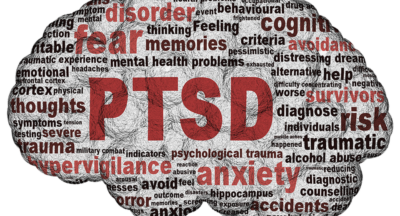
The How To’s in recognizing and dealing with narcissistic individuals. Sometimes, a battle you just can’t win.
First and foremost, recognizing a narcissistic person can be challenging task, as they often present themselves as charming and confident. Many will have obvious traits that are very hard to miss, while others, not too much. As they are amazing actors, it can become extremely difficult to determine if it’s narcissism or just a heightened ego. However, there are several signs to look out for that may indicate narcissistic behavior:

- Lack of empathy: Narcissistic individuals often lack empathy and may disregard the feelings and needs of others.
- Preoccupation with self: Narcissistic individuals may be obsessed with themselves, their appearance, or their achievements.
- Sense of entitlement: Narcissistic individuals may have an exaggerated sense of entitlement and may believe that they are superior to others.
- Need for admiration: Narcissistic individuals may crave attention and admiration from others and may seek out constant validation.
- Difficulty handling criticism: Narcissistic individuals may become defensive or angry when faced with criticism or rejection.
- Manipulative behavior: Narcissistic individuals may use manipulation and deceit to get what they want, including lying, gaslighting, or guilt-tripping others.
- Grandiose self-image: Narcissistic individuals may have an inflated sense of self-importance and may exaggerate their achievements or talents.
- Lack of accountability: Narcissistic individuals may refuse to take responsibility for their actions and may blame others for their problems.
- Competitive behavior: Narcissistic individuals may be highly competitive and may become jealous or resentful when others achieve success.
- Difficulty maintaining relationships: Narcissistic individuals may have trouble maintaining healthy relationships, as they may struggle with empathy, compromise, and communication.
Remember, not everyone who exhibits these behaviors is necessarily a narcissistic person, but if you notice a pattern of these traits in an individual, it may be a sign of narcissistic behavior.

Now, that you recognized the narcissist individual, you wouldn’t need to actual read that second part of the article as you would run on the opposite side and NEVER would want to deal with anyone exhibiting these traits. However, if you are a mentally ill adventurer looking to make your life extremely difficult by staying with that person, you need to know that dealing with a narcissistic person can be overly challenging, as they often lack empathy and have an exaggerated sense of self-importance. So to help you in your bizarre journey of wanting to change that narcissistic person into a tamed pet, here are some strategies you can use to deal with a narcissistic person without wanting to shoot yourself in the head with an AK-45
- Recognize the signs: To deal with a narcissistic person, you must first recognize the signs of narcissism. These signs include a preoccupation with self, a need for admiration, a lack of empathy, and an inability to handle criticism.
- Set boundaries: Setting boundaries is crucial when dealing with a narcissistic person. Be clear about what behaviors you will and will not tolerate, and stick to your boundaries.
- Don’t take it personally: Narcissistic individuals often take advantage of others to boost their self-esteem. Don’t take their behavior personally, as it is a reflection of their own insecurities.
- Stay calm: Narcissistic individuals can be very challenging to deal with, as they may become angry or defensive when confronted. Stay calm and avoid getting emotional when dealing with them.
- Use “I” statements: When communicating with a narcissistic person, use “I” statements rather than “you” statements. This will help prevent them from becoming defensive and may help them understand how their behavior affects you.
- Don’t try to change them: Trying to change a narcissistic person is often futile. Instead, focus on how you can cope with their behavior and protect yourself from their toxic influence.
- Don’t enable their behavior: Enabling a narcissistic person only reinforces their sense of entitlement and can lead to further negative behavior. Instead, hold them accountable for their actions and don’t enable their negative behavior.
- Seek support: Dealing with a narcissistic person can be emotionally draining. Seek support from friends, family, or a therapist who can help you cope with the stress and anxiety.
- Keep a journal: Keeping a journal can help you process your emotions and keep track of any incidents or behaviors that are problematic. This can help you identify patterns of behavior and develop strategies to cope with them.
- Take care of yourself: It’s essential to take care of yourself when dealing with a narcissistic person. Practice self-care activities like exercise, meditation, or spending time with supportive friends and family.
So here it is, both strategies offered all in one article. There is no easy feat when dealing with a narcissistic person, but it’s essential to protect yourself and establish healthy boundaries. Focus on what you can control, seek support, and don’t enable their behavior. If you are still adamant in wanting to move forward with this person hoping for long term bliss, I do personally wish you the best of luck in your journey with Lucifer.
dr.dan
Related Posts
The How To’s in recognizing and dealing with narcissistic individuals. Sometimes, a battle you just can’t win.
First and foremost, recognizing a narcissistic person can be challenging task,...
Understanding the mystery of inherited trauma: Identifying signs and navigating triggers. The difficulties individuals encounter in addressing PTSD stemming from isolated incidents.
Understanding inherited trauma involves delving into the concept of...
Exploring the upsides and downsides of excessive romantic dependence in new or existing relationship
Examining the advantages and disadvantages of being overly emotionally attached...
People’s reaction to your PTSD: What to do when the people you know and are close to have no empathy for your trauma: Challenges you may face when asking for validation of your illness!
When grappling with post-traumatic stress disorder (PTSD), one of the most...




